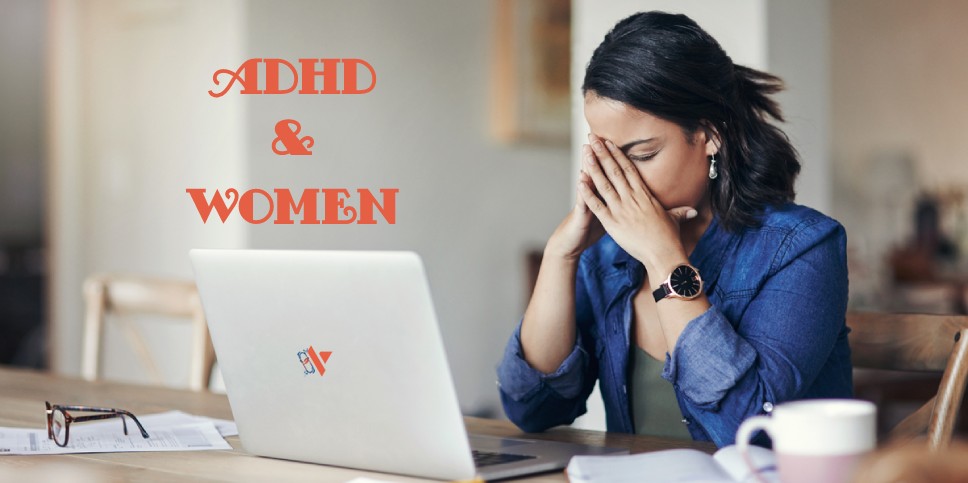
How does ADHD Affect Women?
It’s the reality that many girls grow up with undiagnosed ADHD, hearing themselves disorganized, mislabeled as “spacey,” “Way too talkative.” Those girls who are teenagers, if they have the ADHD problem they can fall behind academically. Her teachers and frustrated parents know that they are capable and intelligent. But the effect of ADHD lowers the activity of the neurotransmitters of the brain.
Less activity of their central nervous system neurotransmitters in the brain decreases their power of concentration. In adulthood ADHD affected girls suffer from the struggle due to increased life responsibility. Due to social iniquities, even in this modern era, researchers are devoting more energy to health disparities such as boys getting diagnosed with ADHD compared to girls.
According to the Centers for disease control and prevention( CDC), the comparison of ADHD diagnosed between boys and girls is 12.9% over 5.9%.
Why are girls and women underdiagnosed?
Here you will get some reasons why boys with ADHD are more likely to be diagnosed than girls. There are few complex and varied main factors such as:
- All the researchers’ studies only focus on how boys experience ADHD and how they can shape their life with ADHD.
- In different people, ADHD presents their characters differently. The ADHD Symptoms Influence and dominance depend on age, sex, gender, and hormones.
- Gender norms are also the main reason for Girls’ ADHD Under- diagnosis. Due to that, teachers may also keep away from recognizing symptoms as ADHD in girls. Because in girls, symptoms of ADHD can be more subtle. Due to that, healthcare providers have less focus on diagnosing girls with ADHD. They only focus on that when a girl starts to show symptoms of emotional disorder.
- Gender norms can force girls to hide their ADHD symptoms.
- Due to the stereotypes, social organizations, neatness, cooperation, compliance may force girls and women to refuse ADHD symptoms between family and classroom.
How SEX affects ADHD Diagnosis and Subtypes?
ADHD is a mental health disorder problem that can affect the ability to do some or all tasks such as:
- Break activities and goals into steps
- Manage schedules
- Remember things
- stay organized
- Manage impulse
- Focus, concentration, or pay attention for a prolonged time
All the people who have ADHD usually have symptoms that fall into three categories:
- Hyperactivity impulsive- It shows by restlessness, difficulty, excessive talking problem, and often interpreting.
- Inattentive- it combines difficulty in concentration, making careless mistakes, or often losing necessary items.
- Combined- Both hyperactive and inattentive symptoms characterize it.
It suggested that at least you should have six to nine listed symptoms of ADHD from the American psychiatric association’s diagnostic and statistical Manual ( DSM-5) for a specific type of ADHD diagnosis.
The symptoms of ADHD should present in you for months every day at school or home to diagnose it.
How does SEX influence ADHD symptoms?
The influence of the symptoms depends on the gender norms, different from person to person. Sex or gender are not making sure right each individual gets the proper diagnosis of ADHD.

Hormones and ADHD
The changes in hormone levels in all SEX can influence ADHD. At puberty, the ADHD symptoms change in all genders when sex hormones affect behavior and physical symptoms.
The fluctuations of the hormones can affect the ADHD symptoms in other ways, such as:
- Changing hormone level- During pregnancy and menopause, symptoms can also increase.
- Inattention- It can increase during the ovulation phase of your menstrual cycle
- Increased levels of estrogen can also enhance ADHD symptoms, especially in those women who experience impulsivity.
The emotional and psychological effect of ADHD in Women
- Researchers have reported that girls with ADHD suffer from conflict in their social relationships more than those who do not have ADHD.
- Multiple studies reported that those girls who have ADHD lower their self-esteem more than boys with ADHD.
- Women and girls who have the problem of anxiety, depression, eating disorders experience a high risk while diagnosed with ADHD.
Some common symptoms effects of ADHD
In different persons, ADHD symptoms look different. It would be best if you got to know some practical effects of ADHD.
If you recognize many of them in yourself, you should talk to healthcare professionals if you are experiencing some problems such as:
- At the school or workplace, if you feel like hiding your feeling of hopelessness.
- If you have a persistent feeling that your life is entirely out of control.
- In long meetings, I feel restless, fidgety
- I become hyper-focused on one thing
- I had trouble staying organized. That’s why I lost my job
- All-time I feel depressed or anxious
- Sometimes I overeat and overdrink
How do sex and gender affect the treatment of ADHD?
Doctors prescribe the children and teens stimulants and non-stimulants to manage symptoms, improve functioning during diagnosed ADHD. Researchers show that doctors prescribe lower doses to the girls for diagnosis of ADHD compared to boys doses. It shows that the rate of effect of stimulants or non-stimulants is higher on girls than boys. One more difference is in behavioral differences between girls and boys, which can cause boys to get more treatment than girls for ADHD.
The prescription rate of ADHD treatment is different in both men and women, and women need less medication than men. More studies are needed to know how female and male bodies process ADHD medications and how hormones alter and affect their bodies. Understanding of altered hormone effects of ADHD medications helps doctors tailor treatment to what each woman needs. With the medications for treating ADHD, cognitive behavioral therapy, social training, and psychotherapy can also help.
Why does an early and accurate diagnosis matter?
In the condition of delaying the early diagnosis or treatment of ADHD, people can experience some worse outcomes such as:
- Sleep problems
- More depression and anxiety
- Physical abnormalities and headaches
- Lower self-esteem
- Less academic and career achievements
In all these ways, women are affected with ADHD.
